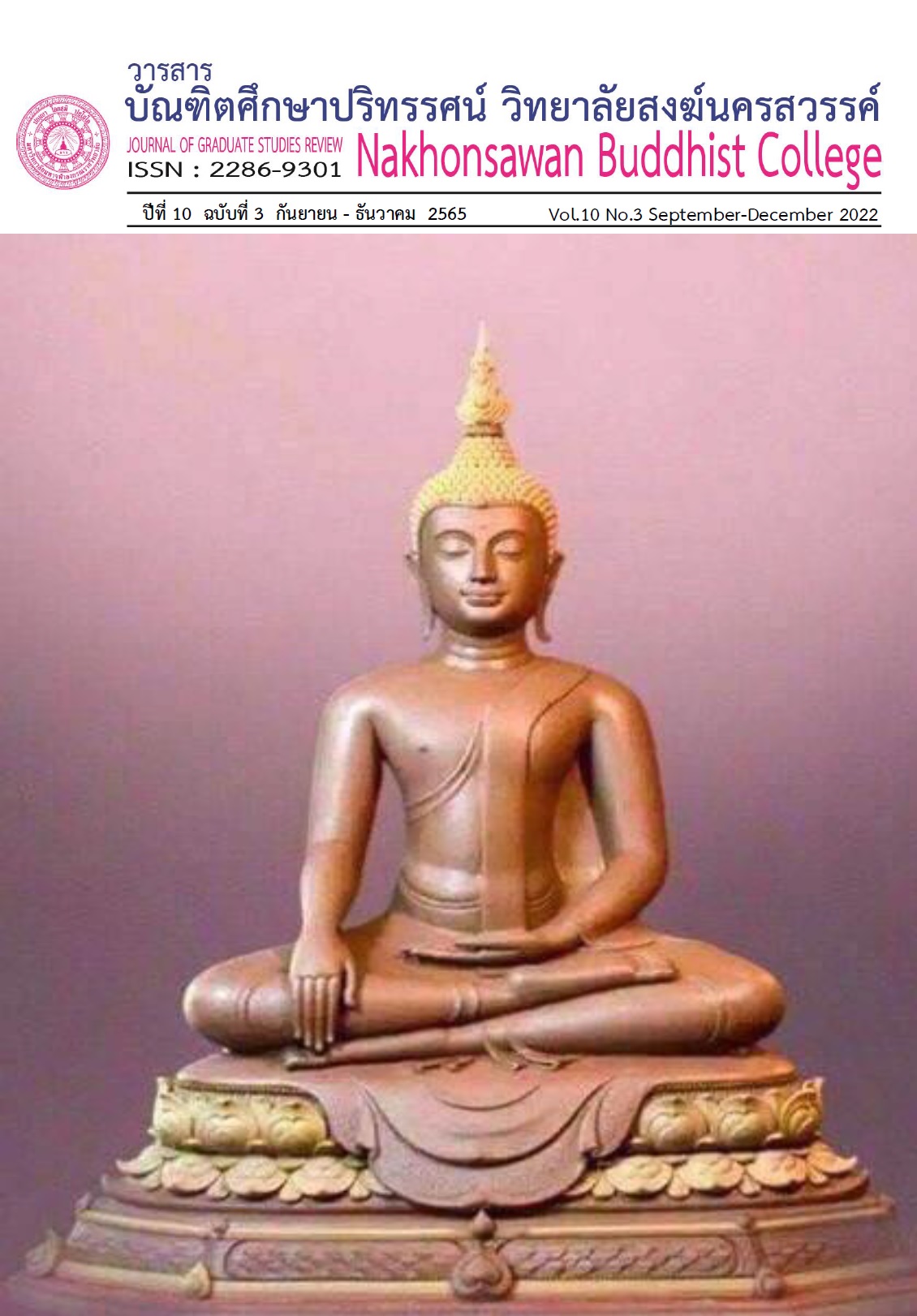personnel management in educational institutions according to the threefold principle
Main Article Content
Abstract
Educational management process in Buddhism by embracing the Buddhist method in the administration of education The important Buddhist principles are the trisikkha principles, including precepts, concentration, and wisdom, which are training that emphasizes practice rather than teaching in theory. The Trisikkha principle is a development process in 3 aspects: morality, the principle of developing relationships with the social environment, and concentration, the principle of developing the mind to have the capacity and efficiency in thinking, deciding to act or not do any action.
Keyword: Trisikkha principles,Personnel management,School. Wisdom is the principle of cognitive development. to know things as they are and to be able to discern, analyze, and clearly determine the cause of them; Therefore, the tri-sikkha is an integrated development process, that is, the principle of life development in order to be successful as a perfect person according to the Buddhist principles. The tri-sikkha is therefore classified in the way (dharma that should be developed) that is, should be created. to be used as a tool to improve life. When we integrate with personnel management in educational institutions which provides quality education Personnel are extremely important. Management in educational institutions to achieve the goal requires 4 essential resources, namely people, money, materials, and management. efficiency principle and effective principles. The adoption of the trisikkha principles will enhance the organizational culture and management that is friendly. Create a collaborative atmosphere that encourages members to enjoy their work. have self-development, work development, others' development, and sustainable organizational development.


